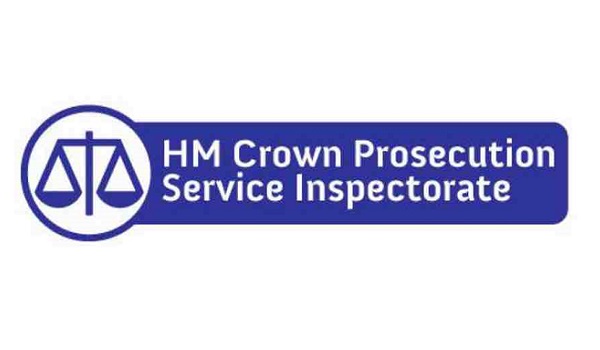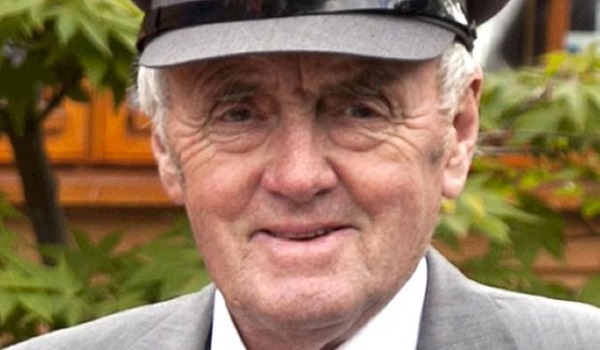Drop in rape convictions blamed on police resources being ‘beyond breaking point'
A steep fall in rape convictions in England and Wales has been blamed on a lack of resources, which has left the criminal justice system “close to breaking point”, and the police service “beyond that”, HM Crown Prosecution Service Inspectorate (HMCPSI) has found.
HM chief inspector Kevin McGinty said: “Since 2016 there has been a substantial increase in rape allegations, while the number of rape prosecutions has fallen significantly – which indicates there is a serious problem.”
In the year ending March 2019, 58,657 allegations of rape were made but there were only 1,925 successful prosecutions.
The HMCPSI report, published today (December 17), highlighted a complex mixture of causes, of which chronic underfunding was a leading factor.
It said: “Police and the Crown Prosecution Service (CPS) have seen significant reductions in their resources. [The criminal justice system] has been under-resourced so that it is close to breaking point. In the case of the police, it may have gone beyond that, and… the number of rape allegations lost in the investigative process is damning.”
Requests for forensic examination of phones, for example, are taking up to 11 months to complete. The report also found that lawyers in the CPS’s Rape and Serious Sexual Offences units were overstretched.
Almost 40 per cent of CPS lawyers who took part in the study said their caseload was “heavy and unmanageable”.
The Inspectorate cleared the CPS of recent accusations made by women’s and victims’ campaign groups that prosecutors were becoming “risk averse” and pursuing only cases with the strongest possible forms of evidence.
Prosecutors observed the Code for Crown Prosecutors, the report said. In a 2016 inquiry, HMCPSI found the test was applied incorrectly in 10.1 per cent of rape cases. In the latest cases examined by experienced inspectors, that had fallen to two per cent.
“Rather than the CPS being risk averse, these decisions are often finely balanced, with many difficult matters to weigh up in the evidence,” said the report.
However, it was critical of prosecutors for pushing for disclosure of sensitive personal data that was not “proportionate” to the investigation.
In 39 per cent of relevant cases this included obtaining “information from the complainant’s digital devices, and making requests for third-party material (such as education, medical or social services records) that were not necessary… some prosecutors are still asking for a full download of a complainant’s or suspect’s phone”.
The National Police Chiefs’ Council lead for adult sexual offences and rape, Deputy Chief Constable Sarah Crew, said: “The shortage of detectives, the large increase in digital evidence and tackling disclosure challenges have all impacted on the number of cases referred to the CPS and the time taken to investigate and prepare these. The recruitment of 20,000 officers over the next three years will help us to ease the pressure on investigators and improve outcomes for victims.”
Sarah Green, director for End Violence Against Women, a coalition of women’s groups, added: “The report recognises that the statistics alone raise huge questions about justice being done, but it insists there is quality CPS decision making. At the same time the report refers to its own survey of CPS managers saying their units are not well staffed.”
Director of Public Prosecutions Max Hill QC said: “I share the deep public concern over the growing gap between the number of rapes being reported, and the number of criminals being convicted of this sickening offence. It is right that the CPS is open to independent scrutiny to be sure that we are doing everything possible to bring offenders to justice.
“I am reassured that HMCPSI has found no evidence that the CPS has become risk averse when deciding whether to charge these cases. Our prosecutors are highly trained, dedicated, and committed to taking even the most challenging cases to court whenever the legal test is met. I welcome this vote of confidence in their professionalism, and the quality of their legal decision making.”
The CPS said it accepted all the recommendations made by HMCPSI for improvements in how the police and prosecutors can work together. A statement said a joint programme of action with the police to build the strongest possible cases from the outset and bringing them before the court as quickly as possible. These include:
- Case progression – embedding new guidance on early investigative advice and reasonable lines of inquiry to ensure we build strong cases from the outset, and improving the implementation of action plans, through effective communication, clear timelines and robust escalation points to ensure we reduce the number that are administratively finalised and expedite bringing strong cases to court;
- Digital capability and disclosure – embedding guidance to help investigators and prosecutors balance the needs of an investigation with the right to privacy, and working together to help the public understand the impact of digital evidence and third party evidence on our casework, including how we decide what data to collect, how we collect it as part of a criminal investigation and prosecution, and how it might be used;
- Expertise – exploring different models, locally and nationally, for delivering specialist investigation and prosecution in RASSO (rape and serious sexual offences) cases, and following the publication of the Government’s review, hosting a joint national conference and regional workshops to deliver specialist training to our investigators and prosecutors, including on the offender centric approach and trauma.
- Supporting victims – working together and in partnership with specialist services, to ensure victims receive the right information and support and feel listened to, and improving the quality of our communications to ensure they are timely and sensitive to the needs of particularly vulnerable victims and witnesses; and
- Stakeholder engagement – drawing on the collective expertise of the police’s National Rape Working Group and the CPS’s external consultation group through workshops to help shape joint areas of work and our respective long-term plans.
Mr Hill added: “I know that there are things we must do better. The cross-government review is rightly looking at all parts of the system to identify actions to improve how these challenging cases are handled. The CPS is committed to doing everything in our power, along with our partners, to improve our response. I look forward to the conclusion of the review, and any further insights into why such a small proportion of cases ever reach the CPS for a charging decision.”







